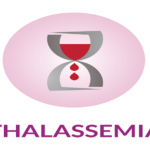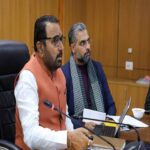India
healthysoch
New Delhi, December 07, 2019 :
The President of India, Shri Ram Nath Kovind graced and addressed the 2nd convocation of AIIMS, Jodhpur today (December 7, 2019). He also inaugurated the new building of Rajasthan High Court in Jodhpur.
In his convocation address, the President said that there is a need to develop low-cost diagnostic, treatment and rehabilitative services. It is important that India starts making its own equipment that not only serves to provide affordable healthcare but also sets up India as a medical technology hub as part of the Make in India initiative. He was happy to note that AIIMS Jodhpuris setting up an Innovation Centre for Medical Technology along with IIT Jodhpur. The two are also collaborating for an AIIMS-IIT Knowledge Innovation Cluster. He said that this is a welcome step as it will boost the medical technology sector in the country. He urged these institutes to continue working together for betterment of people in the area and the country.
The President urged the graduating students to remain full of empathy, and never let an opportunity pass to save or improve lives using their skills and knowledge. He said that they should always try to maintain highest level of ethical standards and professionalism for the entire career. He said that all doctors and nursing graduates would do well to remember that the community around them looks up to them, and they would have to maintain the nobility of the profession.
Later, speaking at the Rajasthan High Court function, the President said that his utmost concern is making justice accessible to all. We read about the bells of justice at royal palaces in old times. Anybody could ring the bell and ask the king to right a wrong. Today, can the poorest of the poor and the most marginalised come here to seek redressal of their grievances? This is of utmost importance, as the very Preamble of the Constitution exhorts all of us to make justice accessible to all.
The President said that there are many reasons behind the high and sometimes prohibitive cost of justice. But if we keep Gandhiji’s famous ‘Talisman’ in mind, if we recall the face of the poorest and weakest man or woman we may have seen, we will find ways. For example, we can help the needy with the provision of free legal aid. He said that technology has been a great leveller of our times, leading to social changes too. Its application in the area of the justice dispensation can open the high portals of the judiciary to the common people.







